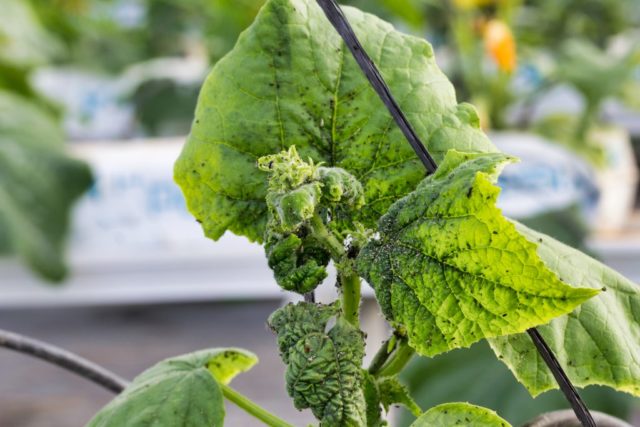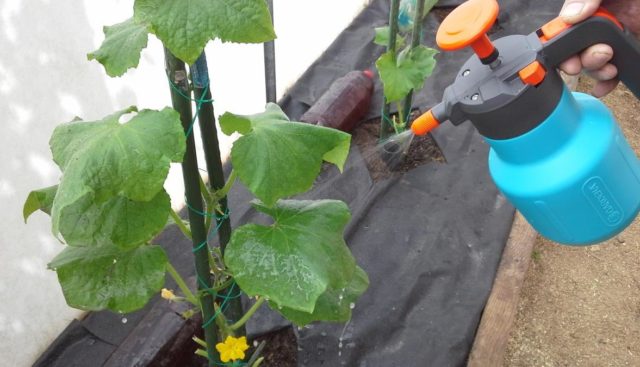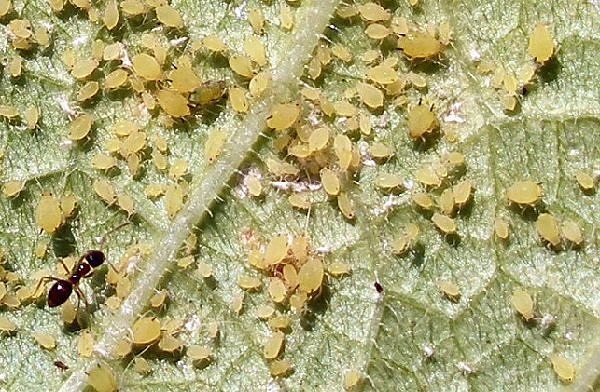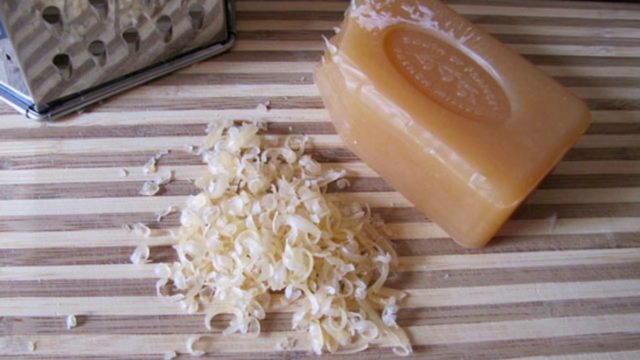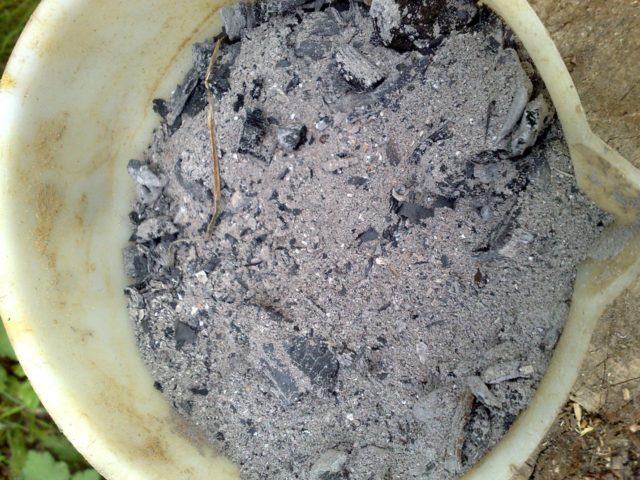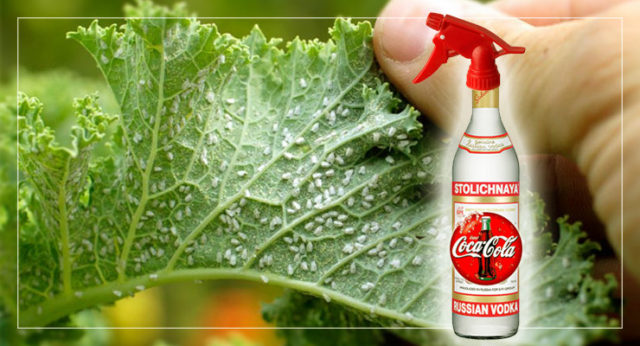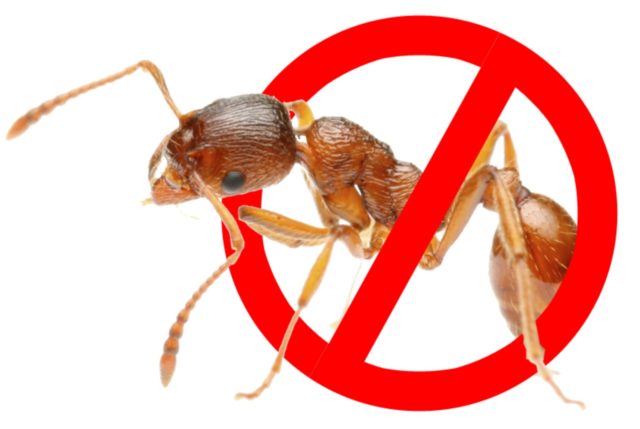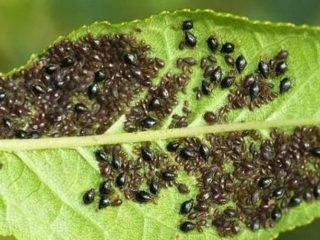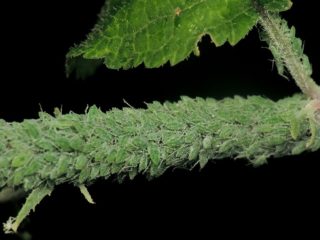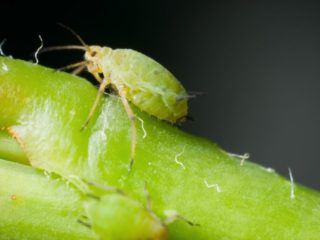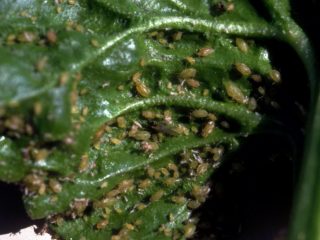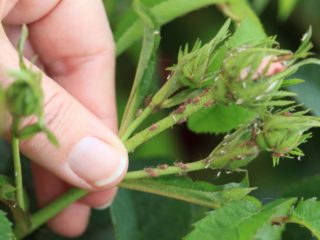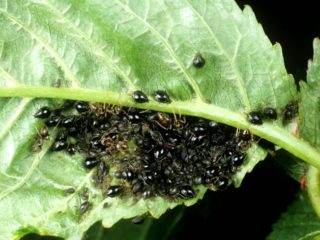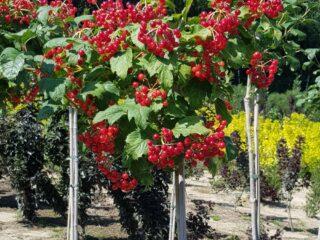Content
- 1 Why are aphids dangerous for cucumbers?
- 2 Ways to control aphids in cucumber beds
- 3 How to get rid of aphids on cucumbers using chemical means
- 4 How to fight aphids on cucumbers with biological preparations
- 5 How to fight aphids on cucumbers using folk remedies
- 5.1 How to save cucumbers from aphids using ammonia
- 5.2 How to kill aphids on cucumbers with mustard powder
- 5.3 How to remove aphids from cucumbers using vinegar
- 5.4 Hydrogen peroxide from aphids on cucumbers
- 5.5 Wood ash treatment
- 5.6 Soap in the fight against aphids on cucumbers
- 5.7 Onion peels are an effective remedy for aphids on cucumbers
- 5.8 Other folk remedies for aphids on cucumbers
- 6 How to spray cucumbers against aphids at different stages of development
- 7 How to protect cucumbers from aphids
- 8 Conclusion
Aphids are a well-known garden pest that parasitizes almost all cultivated plants. Despite its microscopic size, the insect causes great damage to plantings due to its numbers. Aphids on cucumbers are quite common, so plantings need to be inspected regularly and urgent measures should be taken if pests are detected. Inaction can lead to a complete lack of harvest and death of plants.
Why are aphids dangerous for cucumbers?
The melon aphid most often lives on cucumbers. This is a sucking pest that feeds on plant juices.The insects themselves do not differ in significant size; an adult does not grow more than 2 mm. However, their extreme fecundity poses a serious threat; within a few days, an aphid colony can grow hundreds of times in size. To feed, insects make numerous punctures in leaf blades and young stems, which leads to oppression of the plant. Their growth stops, the shoots become deformed, the cucumber leaves curl and gradually die.
No less harmful to plants is caused by the secretions of aphids - sweet honeydew that attracts ants. This sticky white substance coats the leaves, closing the pores and blocking air exchange. Ants that feed on honeydew use aphids as a kind of cash cows, transporting them to new areas and protecting them in every possible way from dangers.
Another danger for cucumbers is that these insects are carriers of dangerous viral diseases such as mosaic disease. By piercing the leaves, these pests deliver the virus directly to the internal tissues of the plant, which leads to rapid and widespread infection, usually ending in the death of the plant.
Ways to control aphids in cucumber beds
There are many ways to protect cucumber plantings from aphid invasion. These include the following.
- Mechanical. Small colonies can be washed off with water or wiped off with a damp cloth.
- Biological. Such methods include planting next to cucumbers and placing certain types of plants that repel aphids in rows.
- Chemical. They consist of treating plantings with various means that destroy insects.
How to get rid of aphids on cucumbers using chemical means
Chemical preparations for controlling aphids include intestinal and contact insecticides. They act quite quickly and effectively, but their use is possible only for a limited time, namely at the beginning of the growing season. Flowering cucumbers cannot be processed, as this will kill not only aphids, but also bees that pollinate the plants. An additional side effect from the use of such products is that the toxins contained in insecticides can accumulate in fruits or in the soil and are removed from there for quite a long time. Therefore, after using certain chemicals, it is necessary to wait a certain time before harvesting, sometimes up to 20-30 days.
Effective remedies for aphids are the following chemical preparations for aphids on cucumbers:
- Inta-Vir.
- Karbofos.
- Spark.
- Fufanon.
- Commander.
- Actellik.
To treat cucumbers, the drug is diluted in clean water in accordance with the recommendations indicated on the package. It is better to choose a dry, cool day for processing plantings. All plants should be sprayed, paying special attention to the underside of cucumber leaves, where aphids usually live.
How to fight aphids on cucumbers with biological preparations
Biological preparations have one undeniable advantage over insecticides: they are less toxic and more environmentally friendly. Typically, such products are used at the early stage of aphid emergence. Such drugs include:
- Aktofit.
- Biolin.
- Bitoxibacillin.
- Arrow.
- Tanarek.
- Fitoverm.
Unlike chemicals, the active substance, for example, in Fitoverm, is a neurotoxin of biological origin, released from certain groups of soil fungi.When this compound enters the insect’s body, the nerve centers are blocked, which is why the pest stops moving and feeding and dies after a certain time.
Treatment of cucumbers with biological products is carried out by spraying, just like when using chemicals. When preparing the solution, it is very important to adhere to the specified dosage, otherwise other insects may suffer from the use of such compositions.
How to fight aphids on cucumbers using folk remedies
There are many ways to remove aphids on cucumbers, time-tested many times. Many of them are absolutely harmless and are aimed not at destruction, but at repelling the pest. You can also use such remedies against aphids on cucumbers during fruiting.
How to save cucumbers from aphids using ammonia
An ammonia aqueous solution (ammonia) is a good remedy against aphids on cucumbers. To prepare the solution you need 50 ml of ammonia. It must be diluted in 10 liters of clean water. For better wetting and holding ability, liquid soap and vegetable oil (3-5 spoons) are added to the solution. The plants need to be treated with this mixture, systematically spraying all the cucumber vines.
How to kill aphids on cucumbers with mustard powder
Add 100 g of mustard powder to 3 liters of boiling water. Mix well and let sit. After the powder has settled, carefully drain the resulting infusion from the sediment.Cool, add up to a whole bucket of clean water, soap and 4-5 tbsp. l. vegetable oil.
How to remove aphids from cucumbers using vinegar
Vinegar is a cheap and effective means of combating aphids, but it must be used with great care. This substance is a fairly strong organic acid and, if the concentration is exceeded, can leave burns on the leaves. You will need 1 tbsp. l. food vinegar 9%, dissolved in 1 liter of clean water, 1 tbsp. l. soap in shavings or solution.
Using a vinegar solution to spray cucumbers against aphids - in the video:
Hydrogen peroxide from aphids on cucumbers
Hydrogen peroxide is not only an effective remedy against aphids and other pests, but also a good fertilizer. To prepare a spray composition for 1 liter of water you need to take 50 ml of peroxide and 50 g of granulated sugar. Hydrogen peroxide is an unstable substance and disintegrates in open air, so the treatment is repeated several times with an interval of 7-10 days.
Wood ash treatment
Many gardeners use wood ash as a fertilizer for feeding, and also as a means to deoxidize the soil. An infusion of this substance is a weak alkali, so it is used to normalize the pH level in the soil along with such agents as dolomite flour, chalk or lime. To prepare a composition for spraying cucumbers against aphids, you need to dilute 0.2 kg of wood ash in 10 liters of water and leave for 24 hours.
To better fix it on the leaves, add a little liquid detergent to the mixture.
Soap in the fight against aphids on cucumbers
Soap solution is quite effective and safe; its solution is easy to prepare.You need to take 10 liters of clean water and add 100 g of laundry soap, pre-grated. This solution can not only be used to treat cucumbers, it is also used to wipe the leaves on which the aphid colony is located. The soap solution not only washes away insects, but also removes honeydew.
Onion peels are an effective remedy for aphids on cucumbers
An infusion of onion peels is a fairly effective and absolutely safe way for plants to get rid of small sucking insects. To prepare this product, you need to pour 0.2 kg of onion peel into 10 liters of boiling water. After this, the infusion should be allowed to brew for 4-5 days. Then the product needs to be filtered, after which you can begin processing the cucumbers.
Other folk remedies for aphids on cucumbers
Treatment of cucumbers against aphids during the fruiting period and the rest of the time can be done with other folk remedies. Here are the most popular ones:
- Pine extract. To prepare the solution, 1 tsp is enough. dilute the extract in 10 liters of water. For better retention on the leaves, it is advisable to add a few drops of liquid soap.
- Tobacco dust. This is a fairly effective remedy against many pests. To prepare the infusion, you need to pour 0.2 kg of tobacco dust into 10 liters of water. Leave for a day. After this, the solution is filtered, 50 g of soap shavings are added to it, after which the cucumbers are processed. Not all gardeners consider the use of tobacco dust acceptable due to the nicotine content in its composition, so many successfully replace it with celandine or dandelions in the infusion.
- Garlic water. Squeeze 150 g of fresh garlic into 10 liters of boiling water.Leave for a day, then strain, after which you can use the infusion to spray cucumbers against aphids.
- Baking soda. The well-known sodium bicarbonate can also be used as a means to treat cucumbers against aphids in greenhouses and exhaust gas. To prepare the solution you will need 10 liters of clean water and 50 g of baking soda. The components need to be mixed, adding a few tablespoons of sunflower oil and liquid laundry soap for better fixation on the leaves, and then water the cucumbers against aphids.
- Vodka. According to gardeners, aqueous-alcoholic liquid is an excellent remedy for aphids. This method has one significant drawback - price.
- Coca Cola. This popular fizzy drink contains phosphoric acid, which kills aphids.
How to spray cucumbers against aphids at different stages of development
The sooner aphid colonies can be detected, the more gentle methods can be used to destroy them. Therefore, it is necessary to inspect cucumber plantings daily, and if insects are found, take immediate action. At the initial stage, aphids can be dealt with by simply washing them off with a stream of water or wiping the leaves with a piece of rag soaked in a soapy solution. If the aphid population has reached a significant number, it is necessary to use biological and, in extreme cases, chemical means.
Insecticides can be used before flowering and after fruit set. In this case, before harvesting, a certain time must pass, during which the chemical either decomposes into safe components, or its concentration becomes harmless. This period depends on the type of insecticide and is necessarily indicated on its product packaging.Biological agents can be used during all periods of cucumber growth, however, they also have restrictions on their use before harvesting.
Folk remedies are the safest and can be used throughout the growing season. However, even they should not be abused. About 1 month before harvesting, you should not spray cucumbers against aphids, otherwise the cucumbers will have an off-taste and bitterness.
How to protect cucumbers from aphids
Preventing the appearance of aphids on cucumbers is very important, because it is always better to prevent a disease than to deal with its consequences. To prevent the invasion of insect pests, it is necessary to maintain good air exchange in greenhouses, prevent plantings from becoming dense, and promptly remove drying and curled leaves and tops. It is imperative to get rid of ants on the site and not to create cucumber beds next to anthills. Discovered ant colonies are poured with boiling water.
To protect cucumber beds from aphids, it is recommended to plant nearby plants with a strong odor that are not attacked by these pests, such as garlic. It’s also a good idea to have crops growing nearby that attract natural enemies of aphids, such as ladybugs. These include carrots, dill, etc.
Conclusion
Aphids appear on cucumbers quite often, but the gardener has many tools in his arsenal to resist the invasion of these pests. In many cases, this problem can be solved without the use of heavy pesticides, the use of which for any purpose is always a last resort.You should always start with prevention, and if necessary, try to destroy aphids on cucumbers, first of all, with folk remedies, using the most gentle, safe and environmentally friendly preparations.
